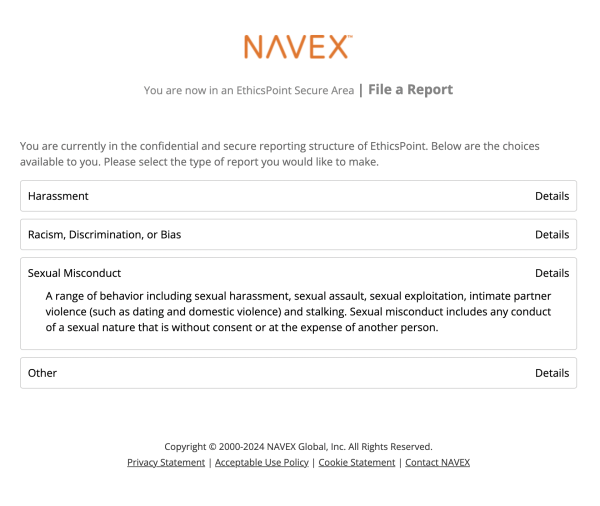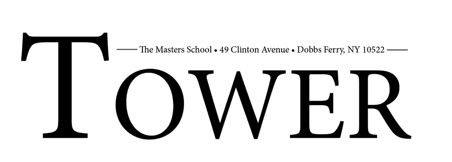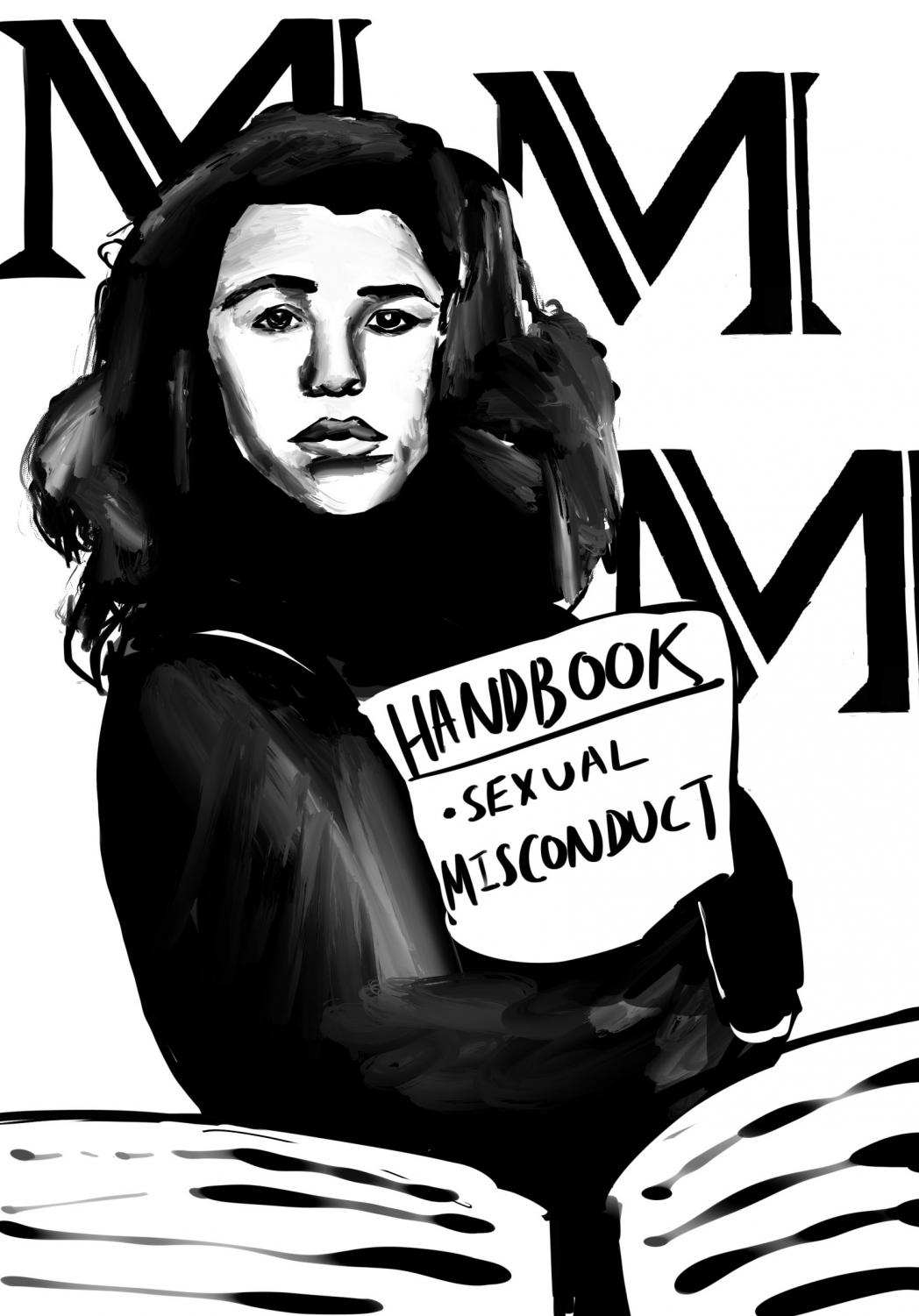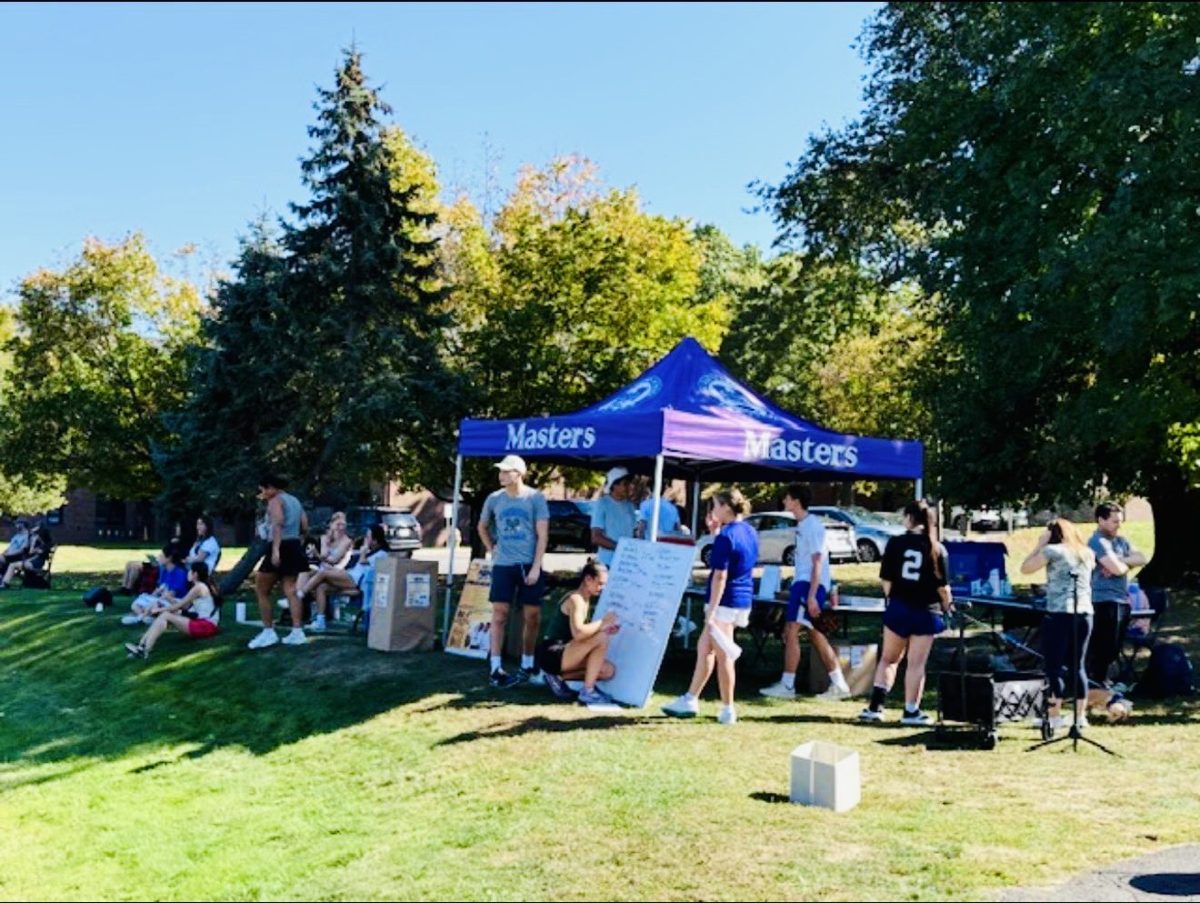In September 2022, one Instagram account garnered a following of 430 people, almost exclusively Masters students, in only around a week before being shut down. Before it was deleted, the page @sexualassaultatmasters posted 35 purported student and alumni experiences with sexual misconduct.
Around two weeks after the launch of the account, Head of Upper School Peter Newcomb notified the student body about the school’s plan of action, stating, “A group of student leaders, faculty, and administrators have worked together to create a framework for programming designed to educate the community on sexual harassment and assault.”
This plan involved introducing peer-led talking circles and integrating social media awareness training into the curriculum, as well as enhancing the visibility and accessibility of EthicsPoint – the school’s confidential reporting tool designed primarily for sexual misconduct – on the myMASTERS student portal.

Dean of Students Jeff Carnevale elaborated on EthicsPoint’s effectiveness and confidentiality, stating, “If a student makes an anonymous report through the system, it keeps the student completely anonymous. But the student gets an authentic login key, so they can log back in and have communication back and forth with us.” He continued, “If you do file an online anonymous report, check back in within 24 hours because you will get a message from me or someone else.”
Carnevale also shared insights into the rigorous preparation behind addressing these issues, stating, “The members of the dean’s office who are involved with investigating sexual misconduct cases go through specific training every year through an organization called RAINN: the Rape, Assault, Incest National Network.”
In addition, Newcomb promised assemblies discussing relevant topics, writing, “There will be presentations at Morning Meeting every six to eight weeks on topics such as consent, body sovereignty, and allyship. These will be created with faculty and student collaboration to ensure they are both informative and are accessible to the student body.”
Jodie Goldberg, a health teacher who began at Masters around the same time the Instagram account surfaced, shared her perspective on the school’s response. “I was very impressed that Ms. Danforth came to the Morning Meeting … and that the counseling team was looped in from the very beginning so that they could offer support for anyone who needed that,” she said. “I used to be at a school where situations like that would often go under the radar … so, it was a different experience for me, but I appreciated it.”
She also emphasized the importance of accurate information and accountability. “You can’t get everyone on the same page to move towards any kind of change unless everyone is starting with the same foundation,” Goldberg noted. “That, for me, felt like a solid way to make sure that the information was delivered to everyone accurately and at the same time.”
Changes to Policy:
The above document outlines the Masters School’s sexual misconduct policy for the 2023-2024 academic year, highlighting changes from the 2022-2023 policy. Text in yellow represents additions to the 2023-2024 policy; text in blue indicates deletions from the 2023-2024 policy (present only in the 2022-2023 policy); and text in pink signifies modifications. The original 2022-2023 text of pink-highlighted sections is noted in the margins.
In response to the concerns about sexual misconduct, Masters significantly revised its Sexual Misconduct Policy for the 2023-2024 school year.
Discussing the policy revision process, Carnevale revealed, “We review every part of our handbook every year, but the school lawyers also review it, and they make recommendations around making sure that there’s consistency, and that we’re able to be consistent every single time that something comes up.”
One significant change is in the “Parental Notification” section, where the requirement to notify the parents/guardians of the responding party within 48 hours was removed, and a new statement was added, stating, “Responding Party will be informed as soon as practical and as determined by the investigator.”
The “Resolution Process Overview and Timeline” section no longer includes a statement that the preliminary inquiry typically takes one to three days, nor does it mention the resolution process timeline, which previously stated that Masters aims to complete it within 10-14 days after the preliminary investigation and that it should not exceed 60 business days.
Additionally, the “Formal Resolution Process” section was significantly overhauled. The approach to conducting investigations has been revised to be more flexible, taking into account “the circumstances, the age of the students, and other factors as considered by the investigator,” and that “administrators may implement interim measures before and during an investigation, if appropriate.” This contrasts with the previous policy, which emphasized that all investigations must be “thorough, reliable, impartial, prompt, and equitable.”
The steps of the investigation have also been rephrased to provide more discretion to the investigator rather than following a fixed set of steps. The second step, previously stating “Meet individually with the Reporting Parties and Responding Party to receive their statements,” now only specifies “Meet individually with the Reporting Parties to receive their statements,” omitting “and Responding Party.” The notification process for the responding party has also been simplified, adding a new clause that provides “an opportunity for that [Responding] Party to Respond.”
The policy also no longer allows for the addition of additional allegations during the investigation and includes the removal of a provision that allowed both parties to view each other’s statements after they had been provided to investigators. Additionally, the school eliminated the requirement for written notification of the outcome to be made to both the Reporting Parties and Responding Party, which previously included the finding, any resulting responsive actions, and the rationale for the decision.
Furthermore, in the “Reporting Parties and Responding Parties” section, several rights previously afforded to the parties have been removed. These include the prohibition of discussing irrelevant past conduct, including sexual history; the right of the parties to know the outcome of the disciplinary process without limitation on re-disclosure; and the right to request a review of the outcome of the investigative findings and any subsequent sanctions. New clauses state that Masters may report to law enforcement when necessary without prior notice and that witnesses may or may not be interviewed at the investigator’s discretion.
Finally, in the “Appropriate Boundaries and Interactions Between Students and Adults” section, several new sections for interactions with students were added, including “Characteristics of Healthy Relationships with Students,” “Employees are Expected to Follow these Guidelines for Interactions with Students,” and “Pornography and Offensive Content.” New sections on the “Prohibition on Drugs, Alcohol, and Sexual Materials,” “Do Not Direct Students to Keep Secrets,” “Off Campus Contact,” and a prohibition on employees tutoring Masters students were also introduced.










